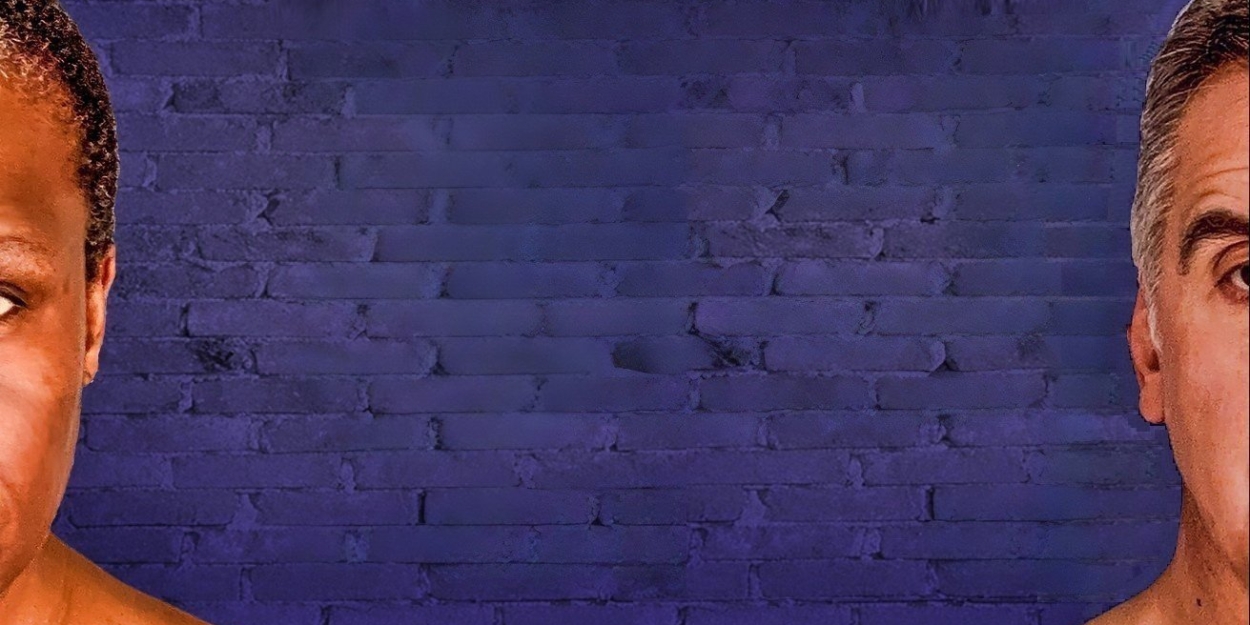BLUE Will Hold Two Black Out Nights at Seven Dials Playhouse This Month
The performances are on 18th and 27th of March.

BLUE, the play which has just opened at Seven Dials Playhouse will be holding two Black Out nights on 18th and 27th of March. BLUE is written by and co-stars award winning writer and performer June Carryl.
Performances run at Seven Dials Playhouse from 5th - 30th March 2024.
Commenting on the Black Out nights planned for BLUE, June says, "I'm genuinely surprised by the government's comments last week. And I've never understood the issue with Black Out nights.
That someone suddenly takes it personally, that a space isn't meant to center them, is precisely the point. It's like in college, no one ever asked why the football players sat together at meals. Just the Black kids. No one ever asks “why Top Gun?”; only “why Barbie?”.
When you live in a culture that centres someone else, when you constantly move through space that isn't built for you – the buildings aren't yours, the signs aren't yours, the laws aren't yours, the language, the stories aren't meant to include you – it is exhausting, deadening, a kind of psychic erasure. You don't even know it's happening until you suddenly find yourself included, in fact, welcomed, centred.
There is a sense of relief, connection with self and others. Part of what it is to be Black or Brown in a white world is that we don't live in the same world. We aren't all invited all the time. That one shares a common set of experiences about the world isn't offensive. It just is.
I'll give you an example: when I was in graduate school in the 90s I went to see Thelma and Louise. I was told it was universal, I was told, it was every woman's movie. I sat in the theatre vibing away, waiting to see myself in that story. You know when I showed up? With the Black guy riding the bicycle through the desert. The guy who blows pot smoke into the trunk of the cop car. If there is a metaphor deeply ensconced in there somewhere, um, thank you? But suddenly, I realized I wasn't a “universal woman” the same way Thelma and Louise were. Not to that filmmaker. I was the butt of the joke.
Why Black Out nights? Because different audiences get different things from a performance when they are amongst those who share common joys, common wounds. There is communion.
It's one night. No one's saying you can't go. But if you begrudge and take offense to that one night, then what you are saying is, “this has to be mine, too.” And if that is honestly how you feel, then maybe the problem is you."
In this unflinching study of the very real and current issues surrounding policing both in the USA and UK, US based writer and actor, June Carryl deftly illustrates how a career ostensibly dedicated to the pledge to ‘protect and serve' has become a magnet for those is search of power. BLUE is written by June Carryl and directed by Michael Matthews.
LAPD Detective LaRhonda Parker knows her colleague well. He's a family friend and her husband's ex-partner. But now he's become the man who shot an unarmed Black motorcyclist at a traffic stop.
In BLUE, newly promoted to The Force Investigation Department, Detective Parker's first assignment is to investigate a 29-year police veteran, Sully. Initially she wants to believe him. But a disturbing revelation forces Parker to decide whether to protect “one of her own” or pursue an investigation that could up-end her marriage and her career. This play is a powerful examination of the recent crises that continues to plague policing both in the USA and UK.
Threading the needle connecting authoritarianism, power, and policing has never been timelier. As a Black woman in America, Carryl was inspired to write BLUE by the seemingly endless stream of tragedy she saw on the news – and from the revelation that, while many on-duty police were terrorised during the U.S. Capitol Riots, it has since been confirmed that a number of off-duty police were amongst the rioters.
The overwhelming fear of knowing that our police forces are easily corrupted is paralleled in the UK with the murder of Sarah Everard by a serving police officer which resulted in the investigation and uncovering of misogynistic and racist failures in London's Met Police in 2021, and the shooting of 24-year-old Black musician Chris Kaba – who was not a suspect of any crime - killed by a single shot to the head fired by an officer in south London in 2022 and resulting in a murder charge for the offending officer.
Both these instances and more since, have resulted in stoking tensions between police and community. BLUE is Carryl's response to the deaths of citizens – overwhelmingly often, Black citizens - at the hands of police that continue to hit the news with alarming regularity.
BLUE shines a stark light on the ‘one bad apple' attitude to police corruption and brutality, critiquing the culture that allows and encourages ever more Bad Apples, and transforms the role of modern-day police into a tool of authoritarianism. It is directed by Michael Matthews and is performed by writer June Carryl as Detective Parker, opposite John Colella as Boyd Sully.
In focusing down to the microcosm of a preliminary investigation into a single police custody death, BLUE peels back the layers beneath the “police as protectors” assumption to reveal not only the individual lives lost and destroyed by police corruption, but also just how endemic the problem has become.
Comments

Videos

